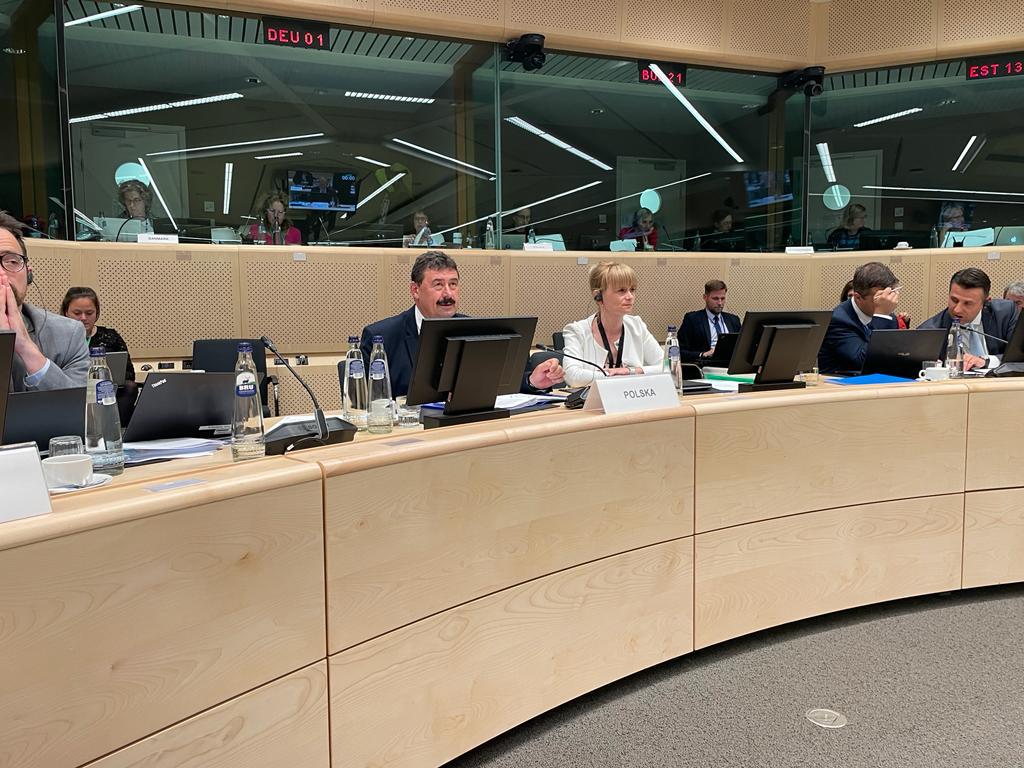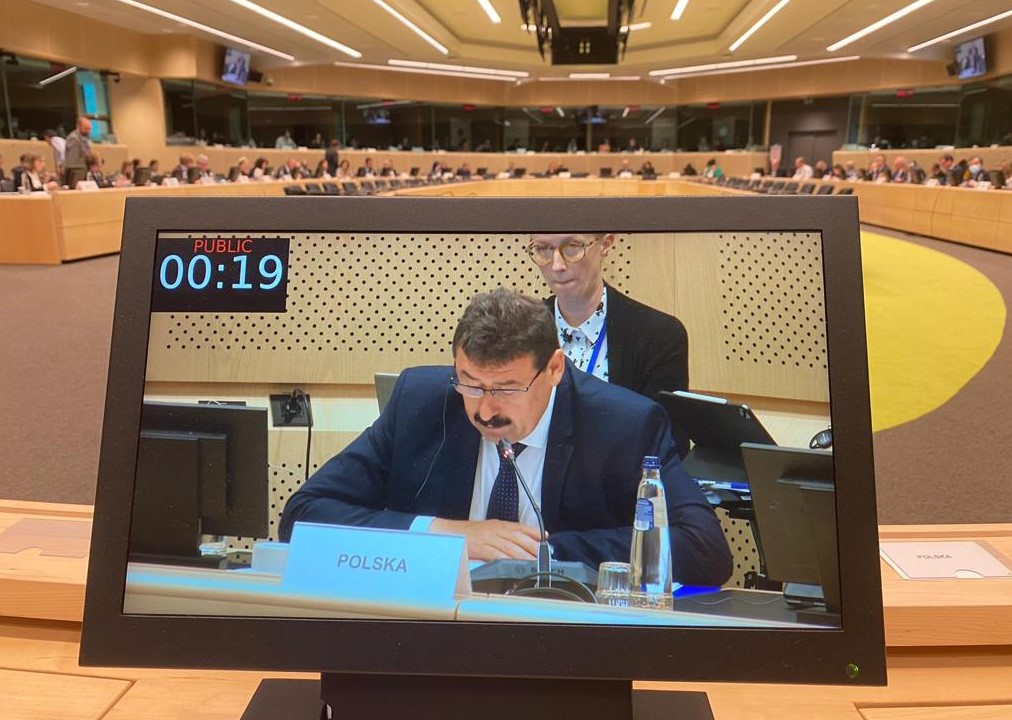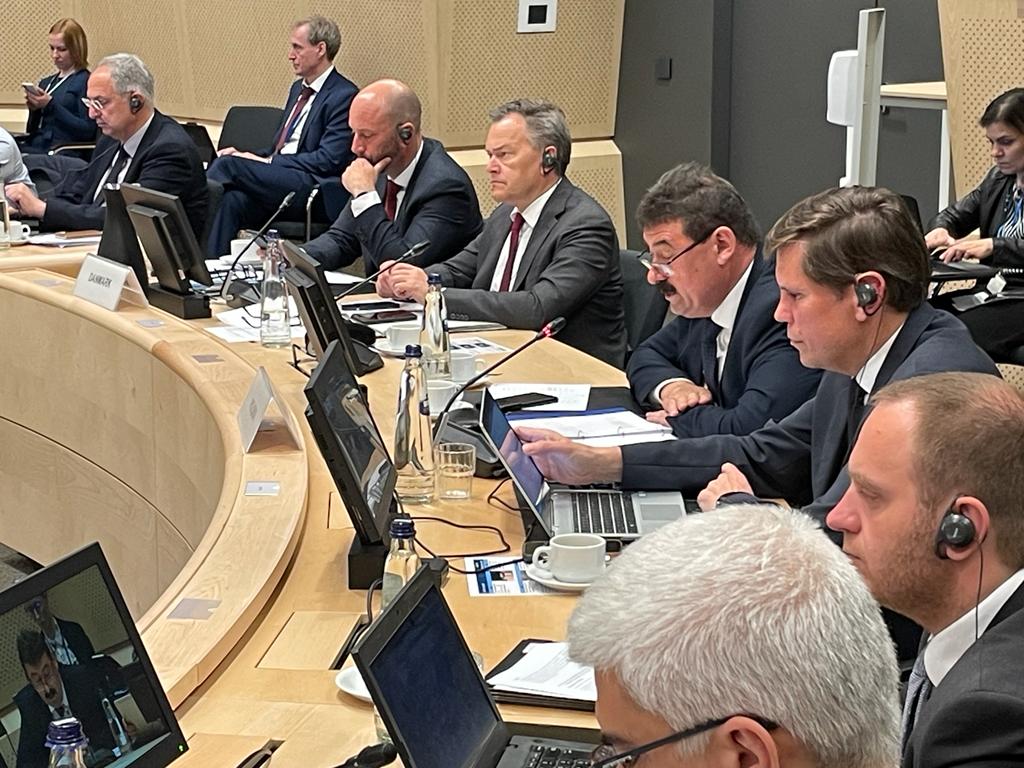About the situation on the agricultural markets during the Agrifish Council
25.05.2022
Secretary of State Ryszard Bartosik participated in the meeting of the Agriculture and Fisheries Council in Brussels.

The most important topics
The most important topics of the meeting included the situation on the agricultural markets and the 12th Ministerial Conference of the WTO. The Ministers also approved the Council Conclusions on highly pathogenic avian influenza.
The situation on the markets
Under the agenda item concerning the situation on the agricultural markets, especially following the invasion of Ukraine, the Ministers heard information from the European Commission (EC) on the developments on the major agricultural markets in the EU. The EC pointed out the main factors determining the current and future situation on the markets: high production costs; the growing inflation, including a 9% increase in food prices in the EU; food security in the regions of the word which are the most dependent on imports and, hence, the possible threat to global stability; the unpredictability of Russia in the scope of the exports of gas, fertilisers and cereals, as well as the possible impact of unfavourable weather on the harvest which had so far promised to be very good. Referring to the situation on the particular markets, the EC stated that the animal production sector faced the greatest difficulties in light of high production costs and the profitability problems. High costs, especially those of energy, are also a significant problem for the fruit and vegetable sector, where the situation is additionally aggravated by export restrictions.
In the discussion, the delegations confirmed that at present the greatest problems included high prices of inputs to production, particularly those of fertilisers and feeds. This generates significant burdens, especially in animal production. It was noted that for this reason the producers’ margins were low or even remained below the profitability threshold, despite the increasing prices of agricultural products. The proposals intended to improve the situation in the scope of food security included the introduction of a yearlong derogation from GAEC 7 in the scope of crop rotation, the extension of the existing derogation on greening and the temporary use of grassland for crops.
Presenting Poland’s position, Minister Bartosik informed that the war in Ukraine still continued to contribute to strong increases in the prices of both inputs to production and agricultural products. “Since April of this year the prices of cereals, cattle, poultry, some of fruit and vegetables and, primarily, rapeseed have grown in Poland. A further increase in prices could also be seen on the feed market. The prices of dairy products have remained relatively stable, while the prices of pigs and table eggs have fallen. The higher prices of fertilisers have an adverse effect on the profitability of agricultural production. In the entire supply chain, concerns persist about the availability of energy and the possibility of reflecting growing costs, mainly the prices of agricultural raw materials and energy, in the sale prices,” Minister Bartosik said.
Solidarity channels for Ukraine
The EC also presented the Communication on solidarity channels for Ukraine. It stressed that their aim was to facilitate the exports of agricultural products from Ukraine and bilateral trade. The Communication identifies obstacles and barriers, not only in the areas of transport and logistics, but also e.g. those caused by administrative burdens and insufficient storage capacity. It contains a list of specific short-, medium- and long-term measures, such as the facilitation of procedures, the improvement of transport capacity and storage infrastructure, and the coherence of the transport network.
In general, the Ministers welcomed the Communication from the EC on solidarity channels, declaring their commitment to facilitate exports from Ukraine. The role of the EU in safeguarding global food security was highlighted.
“The threat to global food security posed by the war in Ukraine also demonstrates the importance of the efforts to ensure that the European Union is self-sufficient in food and to reduce the dependence on food imports in the context of the implementation of the objectives of the European Green Deal,” Minister Bartosik underlined.
Poland also informed about the results of the multilateral meeting held on 16 May of this year with the participation of the Deputy Prime Minister, Minister of Agriculture and Rural Development of Poland, the Minister of Agriculture of Ukraine, the US Secretary of Agriculture and the EU Commissioner for Agriculture. In response, the EC congratulated Poland on the conclusion of an agreement with Ukraine on the facilitation of exports.
The 12th Ministerial Conference of the WTO
Under the agenda item concerning the 12th Ministerial Conference on 12–15 June in Geneva, the EC informed that the results of the negotiations underway in all the areas remained uncertain, particularly in the area of agriculture. The difficulties were aggravated by the Russian invasion of Ukraine and the emerging food crisis. As part of the negotiations, the offensive targets of the EU remained unchanged: the elimination of domestic support distorting open trade, transparency improvements and export restrictions. For the EU, it is important to address the Russian invasion of Ukraine and its impact on food security. The EC assured that it would provide the Member States with up-to-date information and consult them in the course of the Conference.
In general, the delegations supported the approach of the EC to the negotiations. They emphasised the importance of reaching any effects whatsoever so as to resolve the crisis and safeguard food security. They also indicated the need for international food aid to be exempted from export restrictions and the need to improve transparency and to limit the barriers to trade.
Presenting Poland’s position, Minister Bartosik stressed that the important elements of the negotiations should include consideration of the impact of the Russian invasion of Ukraine and a search for solutions which could contribute in the short term to stabilising markets. In this context, the talks should cover the issues of export restrictions, export competition and compliance with the WTO rules.



